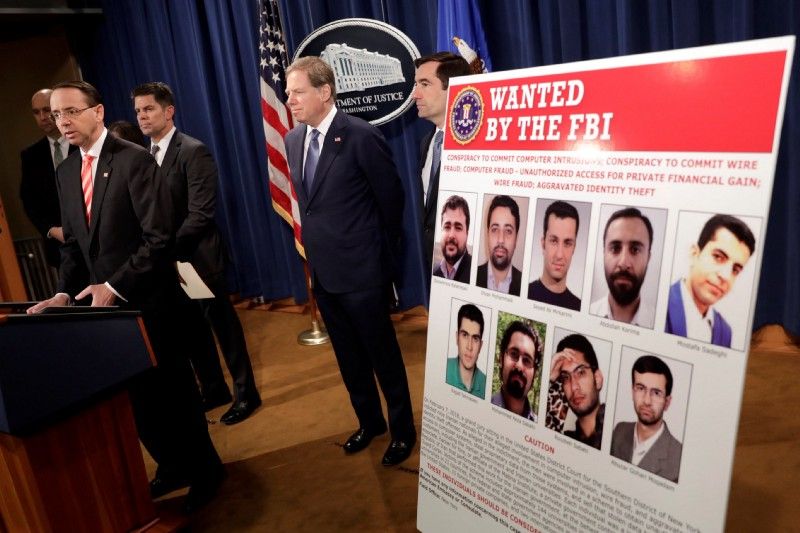March 20, 2018
There you are, minding your business as a nation state when Iranian geeks hack the networks of hundreds of your universities, rip off more than $3 billion worth of research AND leak the latest season of Game of Thrones. If you’re Washington, you respond by issuing felony charges and financial sanctions against the Iranian hackers and…
Wait, that’s it? Surely the US has the capability to inflict significant damage on state and non-state actors alike in cyberspace. But when it comes down to it, as my pal Kevin Allison explains, it’s harder for the US to pull the cyber-trigger than you’d think.
First, there’s no Geneva Convention for cyberspace at the moment. Without global agreement on the distinction between online behavior that is merely bad and what’s truly unacceptable, it’s difficult to determine proportionality in the cyber realm. Does large scale IP theft, for example, demand the same response as hacks or disruptions of critical infrastructure?
Second, unlike, say, lobbing a few cruise missiles at an airbase, cyberattacks and counter-attacks don’t have a neat geography. If those Iranians used servers in Dubai, does striking back at them entail an attack on Iran or on the UAE? Abu Dhabi will be keenly interested in your answer.
Third, cyberattacks are tough to control with precision. If your counterattack spreads beyond its intended target, it can cause collateral damage — including to friends and allies.
So while the US certainly could inflict an awful lot of pain on the Iranians, or any other cyber-attackers, hackers, or crypto-unsavories, the reality is that in most cases doing so is a lot messier and riskier than it seems.
More For You
Prime Minister Narendra Modi, with President of the European Council António Luís Santos da Costa, and President of the European Commission Ursula von der Leyen, at Hyderabad House, in New Delhi, India, on Jan. 27, 2026.
DPR PMO/ANI Photo
On Tuesday, the world’s largest single market and the world’s most populous country cinched a deal that will slash or reduce tariffs on the vast majority of the products they trade.
Most Popular
Sponsored posts
Five forces that shaped 2025
What's Good Wednesdays
What’s Good Wednesdays™, January 28, 2026
Mexican President Claudia Sheinbaum Pardo stands alongside Canadian Prime Minister Mark Carney and US President Donald Trump during the 2026 World Cup draw at the John F. Kennedy Center for the Performing Arts in Washington, D.C., on December 5, 2025.
Deccio Serrano/NurPhoto
Canadian Prime Minister Mark Carney has repeatedly tussled with US President Donald Trump, whereas Mexican President Claudia Sheinbaum has tried to placate him. The discrepancy raises questions about the best way to approach the US leader.
Fighters of the Qassam Brigades, the armed wing of the Palestinian Islamist Hamas movement, attend a rally marking the 35th anniversary of the group's foundation in Gaza City on December 14, 2022.
Photo by Majdi Fathi/NurPhoto
10,000: The number of Hamas officers that the militant group reportedly wants to incorporate into the US-backed Palestinian administration for Gaza, in the form of a police force.
Walmart is investing $350 billion in US manufacturing. Over two-thirds of the products Walmart buys are made, grown, or assembled in America, like healthy dried fruit from The Ugly Co. The sustainable fruit is sourced directly from fourth-generation farmers in Farmersville, California, and delivered to your neighborhood Walmart shelves. Discover how Walmart's investment is supporting communities and fueling jobs across the nation.
© 2025 GZERO Media. All Rights Reserved | A Eurasia Group media company.
